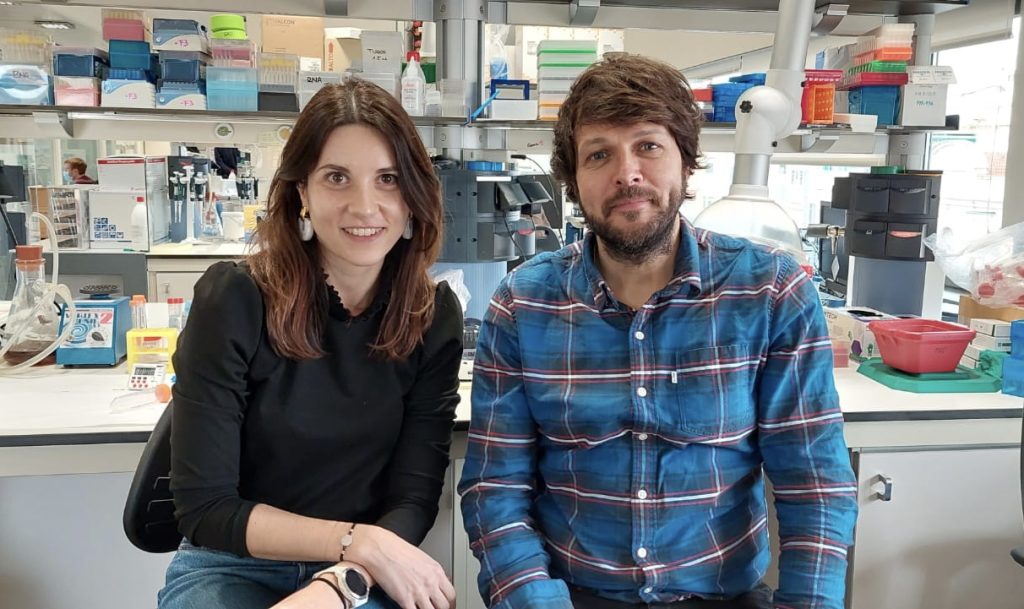Food Cravings in Pregnancy Linked to Signaling in Brain’s Reward Centers
Idiosyncratic cravings for foodstuff such as ice product or pickles, take place in most pregnant ladies. Around-nutrition and being overweight resulting from these kinds of cravings can cause metabolic and psychiatric problems in both equally mother and baby. The neural underpinnings of these kinds of cravings have remained unclear partly for the reason that of the deficiency of ideal behavioral examine models.
According to preliminary findings in a new mouse design, published in Character Metabolic process on April 4, 2022, (“Meals craving-like episodes throughout being pregnant are mediated by accumbal dopaminergic circuits“) these meals cravings are driven by dopamine signaling in the brain’s reward pathway. The neural insights on being pregnant-connected meals cravings also suggest that such ingesting behaviors may well have long lasting metabolic effects in the offspring into adulthood.
Direct author of the paper, Roberta Haddad-Tóvolli, PhD, a postdoctoral researcher in the laboratory of senior investigator Marc Claret, PhD, at IDIBAPS in Barcelona, claimed, “The typical curiosity of the laboratory is to understand neuronal mechanisms regulating food ingestion. Cravings for palatable meals are really prevalent during being pregnant. We turned interested in the mechanisms underlying this distinct ingestive pattern, mainly because even with the well-liked understanding around cravings, its neurobiology continues to be not known.”

The mesolimbic pathway, that connects a area in the midbrain termed the ventral tegmental location to the basal ganglia in the forebrain, is regulated by dopamine signaling and regulates reward-induced behaviors this sort of as determined hunger.
The workforce exhibits, pregnant and pseudo-pregnant (females mated with vasectomized males) mice expertise episodes of foods craving that are connected with the reorganization of brain connectivity that influences vital factors of the dopaminergic mesolimbic circuitry.
The scientists display being pregnant modulates dopamine signaling by neurons expressing dopamine D2 receptors in the nucleus accumbens, a region in the basal forebrain that specifically modulates meals craving episodes.
Their experiments also present mouse pups, particularly male pups, of feminine mice that have been permitted to indulge their food items cravings for the duration of being pregnant confirmed enhanced overall body excess weight, glucose intolerance, and had been additional very likely to develop panic-like behaviors and eating conditions during adulthood, compared to pups of mice that had been not authorized to indulge their foods cravings in the course of pregnancy.
“We have unraveled that the maternal mind suffers a dynamic purposeful connectivity transform that specifically impacts the action of the dopaminergic mesolimbic technique, in direction of cravings for high-palatable food items items. These foods craving episodes, when recurrent, specifically influenced the metabolic and neuropsychological health and fitness of the offspring. Mice born from frequent food craving mothers ended up heavier and offered impaired glucose homeostasis, in addition to a better vulnerability to develop panic and cognition deficits, as very well as an greater predisposition to compulsive eating disorders,” explained Haddad-Tóvolli.

The investigators executed longitudinal useful magnetic resonance imaging (fMRI) to study the brain’s resting state community activity in expecting feminine mice, and conducted a battery of behavioral assessments in the offspring of equally sexes.
“Our benefits reveal the cognitively enthusiastic mother nature of being pregnant foods cravings and advocates for moderating emotional eating all through gestation to prevent deterioration of the offspring’s neuropsychological and metabolic health and fitness,” the authors notice.
In a commentary on the examine in Nature Rate of metabolism, Serge Luquet, PhD, and Giuseppe Gangarossa, PhD, neuroscientists at the University of Paris, who were not concerned in the examine, said, “This function substantiates the vulnerability of the dopamine signaling pathway in the course of pregnancy and brings to the forefront a cautionary note concerning the possible culprits of over-feeding for the duration of this period.”
Haddad-Tóvolli, Luquet and Gangarossa further be aware that the conclusions of the latest study will require affirmation through rodent-to-human translational scientific studies to pinpoint genetic, hormonal, nutritional and environmental things that produce this window of vulnerability in the course of being pregnant.







